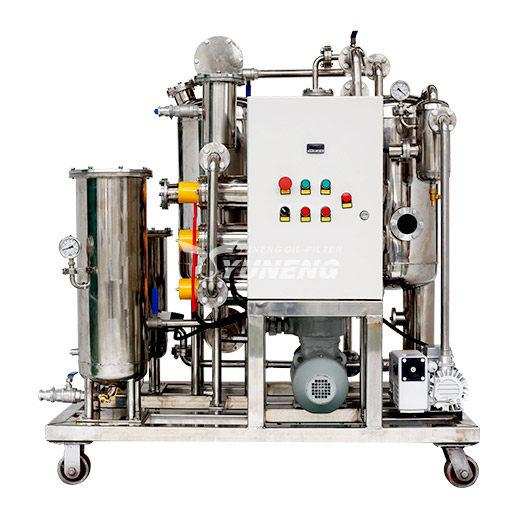In industries dealing with oils and lubricants, fire hazards are a real concern. The presence of flammable oils and liquids, combined with high temperatures and mechanical processes, can lead to catastrophic accidents. To mitigate this risk, fire resistance oil filtration machines have become a crucial part of industrial safety systems. Let’s dive into how these machines work and their importance.
What is a Fire Resistance Oil Filtration Machine?
A fire resistance oil filtration machine is an advanced filtration system designed to remove impurities, contaminants, and moisture from oils and lubricants used in industrial machinery. These machines play a vital role in prolonging the lifespan of oils and ensuring the efficient operation of machines. What sets these machines apart is their unique capability to treat oils with fire-resistant additives, making the fluid safer under high-heat conditions.
How Do They Work?
These machines typically use a combination of mechanical filtration and chemical processes to purify the oils. The filtration process involves multiple stages to remove particles, water, and other impurities from the oil, while the fire-resistant treatment involves adding special additives to the oil. These additives enhance the oil’s resistance to ignition, significantly reducing the risk of fires.
The fire resistance oil filtration machines are equipped with temperature sensors, automatic controls, and safety features to prevent overheating. These systems ensure that even in high-risk environments, the machine performs optimally without triggering any dangerous situations.
Benefits of Fire Resistance Oil Filtration Machines
Enhanced Safety: The most significant advantage is safety. Fire-resistant oil filtration reduces the likelihood of accidents caused by fires, which can lead to severe damage, loss of life, and expensive downtime.
Prolonged Oil Life: By filtering out contaminants and moisture, these machines not only improve the oil's fire resistance but also extend its service life, ensuring better performance and fewer replacements.
Increased Equipment Longevity: Clean oil means that industrial machines and engines are running on optimal lubrication, which leads to less wear and tear, better performance, and increased machinery longevity.
Cost Efficiency: Although fire-resistant oils may be more expensive initially, the reduction in downtime, machine wear, and accidents contributes to long-term savings.
Environmentally Friendly: These machines help ensure that oils are filtered and reused, reducing waste and making industrial processes more eco-friendly.
Applications of Fire Resistance Oil Filtration Machines
These machines are used in various industries, including:
Manufacturing: Especially in factories with hydraulic systems or machinery that uses flammable oils.
Mining: In environments where high temperatures and fire hazards are common, these filtration machines are essential for safety.
Automotive: Ensuring that vehicles and machinery operate smoothly without the risk of fire is crucial in this sector.
Aerospace: Aircrafts use fire-resistant oils, and their filtration is critical for safe and efficient operations.
Conclusion
In high-risk industries, fire resistance oil filtration machines are indispensable tools. By preventing fires, improving equipment performance, and increasing the lifespan of oils, these systems are essential in ensuring both safety and efficiency. With constant technological advancements, these machines will continue to evolve, offering even more protection and reliability in industrial operations.

